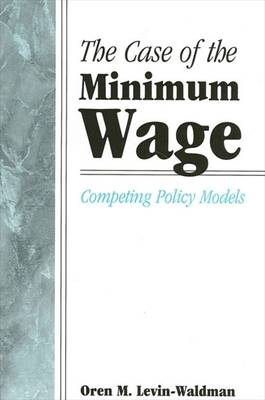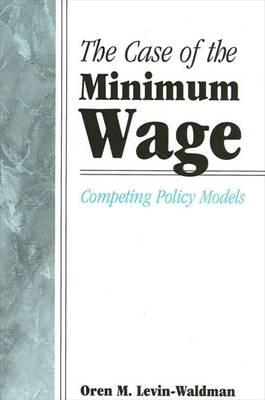
- Afhalen na 1 uur in een winkel met voorraad
- Gratis thuislevering in België vanaf € 30
- Ruim aanbod met 7 miljoen producten
- Afhalen na 1 uur in een winkel met voorraad
- Gratis thuislevering in België vanaf € 30
- Ruim aanbod met 7 miljoen producten
Omschrijving
Places contemporary minimum wage debates in historical context, stressing the importance of political as opposed to economic variables.
This book traces the historical evolution of minimum-wage policy and explains how models are used (and misused) by different interests to achieve their particular aims. Minimum-wage policy was initially legitimated as a broader labor-market policy aimed at achieving greater productivity and labor-market stability. As organized labor has declined as a political force in the last twenty years, the nature of the debate has metamorphized into a narrowly focused and often highly technical discussion concerned with specific effects of given specific increases in the minimum wage, such as either relieving poverty or the so-called adverse effects on youth unemployment. This change has coincided with the greatest stagnation of the minimum wage.
Specificaties
Betrokkenen
- Auteur(s):
- Uitgeverij:
Inhoud
- Aantal bladzijden:
- 250
- Taal:
- Engels
- Reeks:
Eigenschappen
- Productcode (EAN):
- 9780791448564
- Verschijningsdatum:
- 25/01/2001
- Uitvoering:
- Paperback
- Formaat:
- Trade paperback (VS)
- Afmetingen:
- 150 mm x 228 mm
- Gewicht:
- 331 g

Alleen bij Standaard Boekhandel
Beoordelingen
We publiceren alleen reviews die voldoen aan de voorwaarden voor reviews. Bekijk onze voorwaarden voor reviews.







